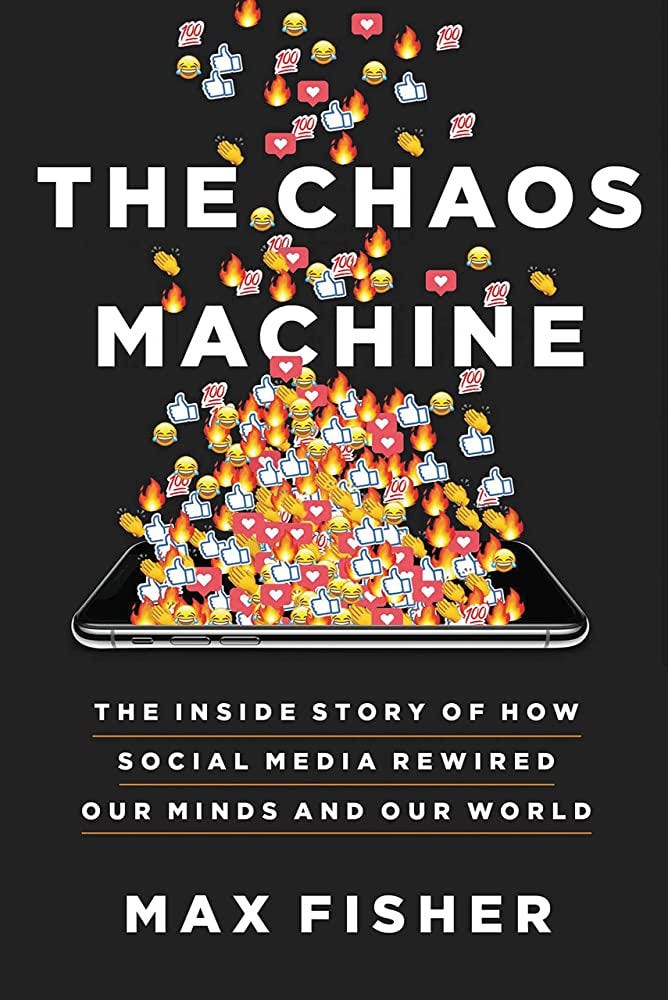What to Read Next (No. 278): The Techpocalypse Is Here
Happy Friday, readers!
The rapid ascension of AI usage in the last few months has many folks wringing their hands about the coming techpocalypse. Even publications like The Atlantic have gotten in on it, writing about the dangers of giving AI access to nuclear codes (umm, duh?). It’s worth considering, though, if we’re in the middle of that techpocalypse already and haven’t recognized it as such. That’s a bit hyperbolic, but the internet has changed our world to an almost unrecognizable degree from even just a decade ago.
In today’s newsletter, I have some thoughts on a book that delves deeply into that subject matter. I also have a few other goodies to share, so let’s get right to it.
A Few Great Longreads
I recently started contributing to Longreads, which is one of the journalistic publications under our umbrella of companies at Automattic. The gist is simple: in addition to publishing original longform journalism and essays, the Longreads team also combs the internet for the best in-depth articles (~2,000 words or longer) to share with readers. Each piece gets an introductory blurb from a staffer, a pertinent excerpt, and a link to the story. Here are the three I’ve contributed so far:
Andreessen Horowitz Saw the Future — But Did the Future Leave It Behind?
Inside the Chaotic World of Kids Trying to Play Video Games on School Laptops
A Few Books to Read That Don’t Warrant Full Reviews
Below are a few books that, for various reasons, I just haven’t gotten around to writing about. And, frankly, I don’t particularly want to, so here are the tweet-length reviews instead:
Wayward by Chuck Wending — Writing anything about this sequel inevitably spoils some critical plot points from the first book in the Wanderers duology. I’ll just say that I really enjoyed both of these door-stopping apocalyptic books.
The Terraformers by Annalee Newitz — I didn’t always love the story in Newitz’s world-building sci-fi tale, but its creativity was off the charts. It hasn’t necessarily gotten better in my memory since I first read it a few months ago, but I have thought about it somewhat regularly, which is saying something.
The Mist by Stephen King — Okay, this novella probably does warrant more of a full review, but I might save it for Halloween. I first read it a few years ago and listened to it this time, superbly narrated by Will Patton. It’s almost perfect and offers a distilled version of what makes Stephen King the master of suspense and horror.
The Chaos Machine: The Inside Story of How Social Media Rewired Our Minds and Our World by Max Fisher
A few weeks ago, I wrote about Meganets, a book that went into great detail about the algorithms that have come to impact our society more than most of us should be comfortable with. The Chaos Machine is related but delves more into the psychological aspects of social media on both an individual and societal level.
The conclusions are deeply unsettling, to say the least. And while there’s undoubtedly an element of alarmism, the evidence suggests that it’s (mostly) warranted.
The more time I spend working in tech and reading about the industry, the less time I spend on social media (or any service with an algorithm). These networks absolutely have value and shouldn’t be written off as all-bad, but our use of them needs more balance and thoughtfulness.
Here’s what stood out most to me from The Chaos Machine:
“An ever-growing pool of evidence, gathered by dozens of academics, reporters, whistleblowers, and concerned citizens, suggests that [social media’s] impact is far more profound [than originally believed]. This technology exerts such a powerful pull on our psychology and our identity, and is so pervasive in our lives, that it changes how we think, behave, and relate to one another. The effect, multiplied across billions of users, has been to change society itself.”
“Remember that the number of seconds in your day never changes. The amount of social media content competing for those seconds, however, doubles every year or so, depending on how you measure it.”
“People who deleted Facebook became happier, more satisfied with their life, and less anxious. The emotional change was equivalent to 25 to 40 percent of the effect of going to therapy—a stunning drop for a four-week break. Four in five said afterward that deactivating had been good for them.”
I don’t judge anyone’s social media use, truly. But I do believe that rather than alleviating any anxiety or need for belonging, social media instead exacerbates those things. Though imperfect at times and not up everyone’s alley, The Chaos Machine solidified my somewhat latent advocacy for Silicon Valley reform and more thoughtful use of our favorite apps.
Thanks so much for reading — I deeply appreciate your time and inbox space.
-Jeremy



